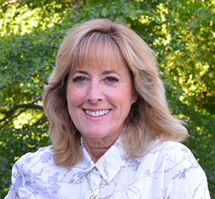Find a CBT Therapist
Search through our directory of local clinicians.
Anne Donnelly

Featured Therapist Interview
Dr. Anne Michelle Donnelly is a Licensed Psychologist in the state of New York with offices in Katonah (Westchester County) and New York City. She received a Doctor of Psychology in School & Community Psychology (now called School & Child Clinical Psychology) at Pace University in New York City, training first in Behavioral Health at North Shore University Hospital and then at John F. Kennedy Medical Center in the Department of Psychiatry and Behavioral Health Services. Dr. Donnelly worked as a Clinical Psychologist at Four Winds Hospital early in her career, then transitioned to full-time Private Practice as well as serving as an Adjunct Clinical Supervisor in the McShane Center for Psychological Services at Pace University. She treats children, adolescents, and adults utilizing a variety of treatment modalities. Dr. Donnelly’s specialties include the treatment of depression, anxiety, OCD, ADHD, BFRBs, eating disorders, and adjustment issues.
First, we would like to know a little about your practice.
What are your personal strengths as a practitioner?
What a great question! I believe it is essential for individuals to identify their values, and then work to weave these values in meaningful ways into their lives. I have enormous respect for people, and am constantly in awe of the ways in which people are able to heal and grow. I love being a psychologist, and feel both lucky and honored to be able to do this work. Probably one of my greatest strengths is how much I truly like people.
How do you remind your patients of their strengths during the therapy process?
It is easy for most people to lose sight of their strengths, particularly when encountering illness, stressful life events, or even simply in the face of challenging situations. It is from the very first therapy meeting that we identify the strengths and tools that an individual has already developed, as well as the ones that that they want and/or need to learn and practice. Very often people feel alone, and it seems that one of the reasons is that we don’t even have ourselves. I work with my patients to assist them in developing a thorough grounding in their own strengths and then teach them to remind themselves what they are. In that way they can practice being there for themselves, and are then never truly alone.
Are you involved in other types of professional activities in addition to your private practice?
I believe in always working to learn and further develop my knowledge and skills. I participate in two Peer Supervision groups (one focused on CBT and the other on Acceptance and Commitment Therapy) and attend various trainings every year. This past year I began training as a Koru Mindfulness teacher. In addition, I am a member of the ABCT Awards Committee, and serve as the Chair of the Student Dissertation Awards sub-committee. I thoroughly enjoy all of these activities.
We are interested in some of your views of CBT.
What do you think is the single most important thing CBT can do for your clients?
I believe that CBT in all of its iterations assists people in developing tools. Time after time I have witnessed the ways in which CBT tools are used by people to transform their lives. It is very exciting and awe inspiring.
Finally, we would like to know your opinions of ABCT.
How has ABCT helped you professionally?
I love going to the conference. Often I go with colleagues and we split up, each attending different workshops and then sharing the learning. Being in private practice, I am especially grateful for the opportunities to connect with colleagues. Also, the focus on excellence, continuing to develop the craft, and research are essential to a healthy profession. People deserve the very best we can offer, and ABCT addresses itself to this through a focus on research, training, and dissemination of innovations and best practices.
Thank you very much for taking the time to answer our questions!
